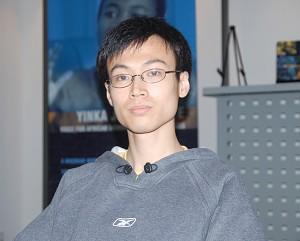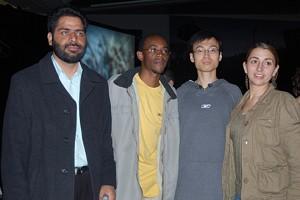Hundreds of guests attended the 2006 Reebok Human Rights Award held at the headquarters of Reebok International Ltd., in Canton, Massachusetts on May 15.
There were four recipients this year, including Li Dan, a 27-year-old man from Beijing, a vanguard in preventing the spread of AIDS in China. Rachel Lloyd, a 30-year-old American, a bodyguard protecting children from sexual harassment in New York. Kurram Parvez, a 28-year-old Indian, resolutely encouraged local youth to strive to pursue human rights and peace amidst the continuing war in Kashmir. Also, Otto Saki, 24-years old, a remarkable hero of justice and human rights in Zimbabwe.
From 1988, the Reebok Company set up human rights awards to encourage young heroes for their efforts in upholding human rights. Amongst them, four youths from China were awarded the special honor twice. Three student leaders of the democracy movement on June 4, 1989 including Wang Dan received the award previously and the other Chinese recipient was Li Dan from Beijing this year. Following is an interview with Li Dan by The Epoch Times reporter.

